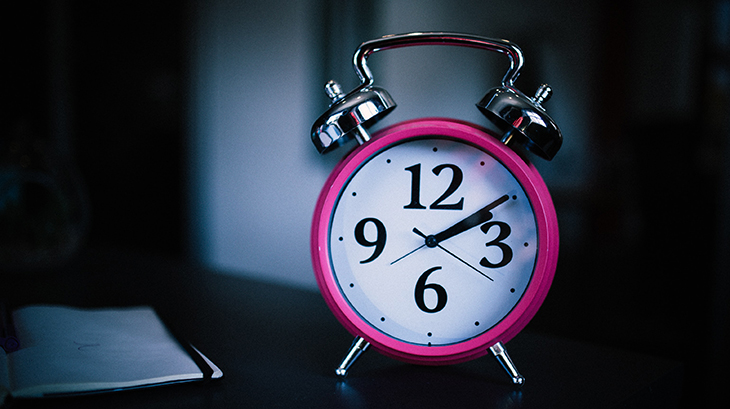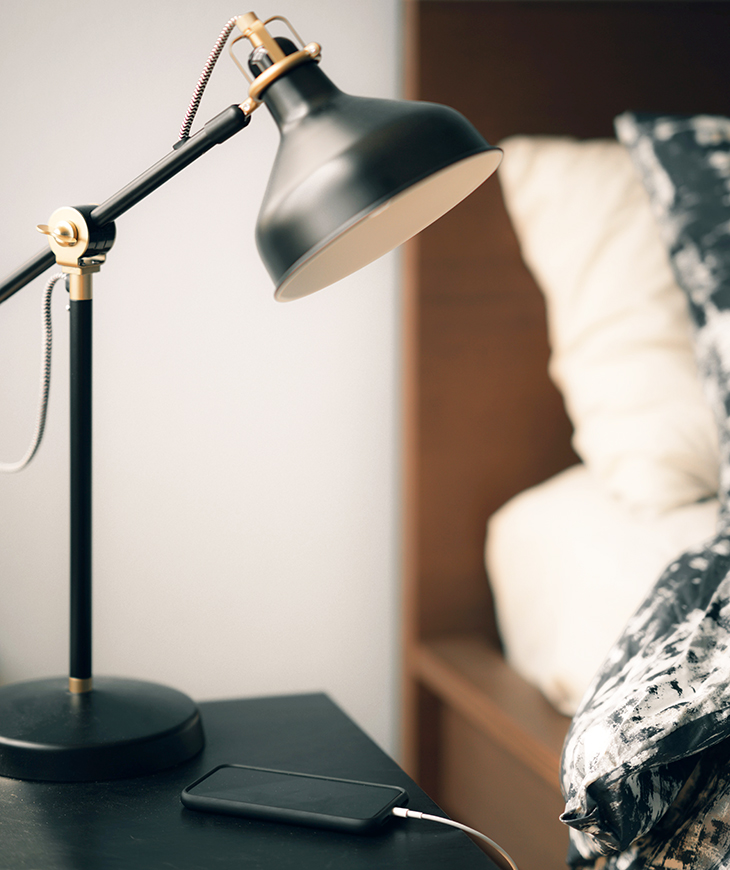Sleep Deprivation Factors & Solutions for Older Adults
Having difficulty falling asleep or getting the required amount of sleep is a common concern among older adults. It’s not just sleep duration that poses a problem for people over the age of 50.
 (Pink Alarm Clock Photo: Mpho Mojapelo via Unsplash)
(Pink Alarm Clock Photo: Mpho Mojapelo via Unsplash)
The lack of quality sleep influences one’s daily mood and functioning. When sleep deprivation becomes chronic, it presents risks such as illnesses and health concerns.
Age is indeed a factor in a myriad of sleep issues affecting seniors. Find out the link between sleep and age, together with practical tips on how to achieve better sleep at night.
How Aging Changes Sleep
Older adults and seniors need at least seven hours of sleep every night, but some tend to sleep less or struggle to maintain deep sleep because of age-related changes or health conditions that can go with them.
Sleep patterns change with age. The suprachiasmatic nucleus (SCN) regulates circadian rhythms that cue when it’s time to sleep or wake, based on exposure to natural light. The SCN declines as part of normal aging, and this can disrupt sleep-wake cycles. Examples of altered sleep patterns are:
- Older adults wake up earlier in the morning or sleep earlier in the evening.
- They tend to be roused from sleep throughout the night for several reasons, including nocturia and sleep disturbances.
- They take daytime naps more to make up for lost sleep.
Sleep apnea can occur in any age group, but the risk of getting it can increase as one grows older. People with this sleep disorder experience breathing pauses and awakenings during sleep, making them feel sleepy or fatigued during the daytime. Snoring can be another sign of this medical condition, but not everyone who snores has sleep apnea.
Continuous positive airway pressure (CPAP) therapy is a leading treatment for obstructive sleep apnea among older adults. The therapy uses a machine that delivers a constant flow of air at a prescribed setting through a mask. Getting the most suitable CPAP mask is recommended to ensure comfort and prevent leaks that can hamper the therapy results.
Sleep can be disrupted by medical conditions due to aging. Insomnia has links to arthritis and heart disease. Joint pain can cause sleep troubles, and in turn, sleeplessness can worsen the pain. Age-related changes to your heart may increase the risk of developing heart disease. Just as sleep deprivation can pose a threat to heart health, heart problems can also disturb sleep.
Moreover, mental health problems affect sleep. Twenty percent (20%) of those who are age 55+ have a mental health concern. Depression, which may be due to life changes, is one of the most prevalent mental health issues affecting older adults.
How To Sleep Better as You Grow Older
1. Limit Tech Use Before Bedtime
Blue light from electronic gadgets can suppress the production of melatonin, which helps with sleep. While some studies offer another perspective on blue light impact on sleep, it still helps to limit blue-light exposure before going to bed.
 (Bedside Lamp and Smartphone Photo: Cristofer Jeschke via Unsplash)
(Bedside Lamp and Smartphone Photo: Cristofer Jeschke via Unsplash)
One way to limit this is to turn off your phone or put it somewhere out of reach. If you work with your computer a lot, set clear time boundaries so that it doesn’t infringe on your sleep time.
2. Create A Sleep-Conducive Room
How conducive is your sleeping environment? Consider adapting your bedroom to improve your sleeping experience.
- Darkness: Because darkness is crucial for melatonin production, eliminate or block sources of light. Use blackout curtains. Cover any gaps where light can get in from the outside.
- Temperature: A cool room helps maintain sleep. The ideal bedroom temperature that promotes sleep is 65 degrees Fahrenheit (65°F). To help you cool down, try a nice warm bath before sleeping.
- Noise: Older adults may be more sensitive to sounds, taking into account this research. Wearing earplugs or headphones is one way to block background noise. You can also try installing carpets or rugs in your room.
- Bedding: Find the most comfortable pillows and linens or the most appropriate mattress for back and joint paint. And if your bed squeaks, have it fixed.
3. Cultivate Healthy Sleep Habits
With age having a hand in your internal clock, you may have to adopt new or modified bedtime habits. These sleep tips aim to produce the desired effect of getting adequate sleep regularly.
- Adhere to a regular sleep schedule, where you wake up and sleep around the same time every day.
- Try not to take naps beyond 3:00 p.m., and keep them within 10 to 20 minutes, says the Mayo Clinic.
- Cut back or cut out caffeine. Caffeine can disrupt sleep, and older adults may feel this effect even more.
- Avoid alcohol. Its disruptive effect on sleep is more evident than its supposed sedative effect, especially as one grows older.
- Watch what you eat, and wait for it to be digested before going to bed.
- Limit water or fluid intake before sleeping.
- Go to bed when you are sleepy. It’s your signal to sleep.
Sleep And You
Sleep is always a timely concern regardless of age. It is, however, magnified by the aging process and a variety of other factors. Nonetheless, the effects of sleeping problems on your daily life can’t be ignored. Be proactive with your health, including getting medical advice on sleep concerns.
*This article is for informational purposes only and is not intended as medical or mental health advice, nor is it a substitute for professional medical or mental health advice, diagnosis, or treatment. Always seek the advice of a qualified physician or mental health provider with any questions you may have regarding a medical or mental health condition. In the event of a medical emergency, call a doctor or 911 immediately. This website does not recommend or endorse any specific tests, physicians, products, procedures, opinions, or other information that may be mentioned on the Site or on other websites it links to. Reliance on any information provided by this website or other websites it links to, is solely at your own risk.*

